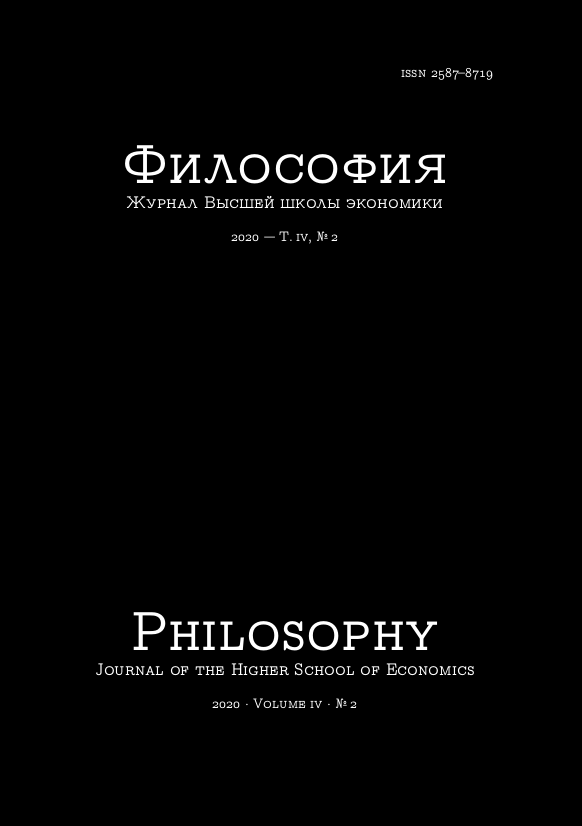Marx and Michael Gefter's Theory of the Event
Abstract
This article is an attempt to reconstruct the theory of the event of the Soviet philosopher, social theoretician and historian Michael Gefter. Based on his unpublished texts written in the 70s, authors return his version of historical materialism to the context of the debates on the status of the event and historical determinism, which took place in European Marxism at that time. The basic unfolding of historical materialism of Gefter — diachronic synchrony, — is one of the most interesting theoretical solutions, which combines structuralism and a new reading of Karl Marx's political economic works. According to Gefter, a historical event is possible as a fulfillment of the potential of diachronic axis “future-past” in the “historical present” by means of signifying of diachrony by synchrony, in contrast to the “eternal diachronic event, which exists in the “mythological time” and signifies synchrony. The reconstruction we propose demonstrates the potential of Gefter's version of historical materialism and his theory for the methodology of historical knowledge, modern social theory and speculative philosophy.






